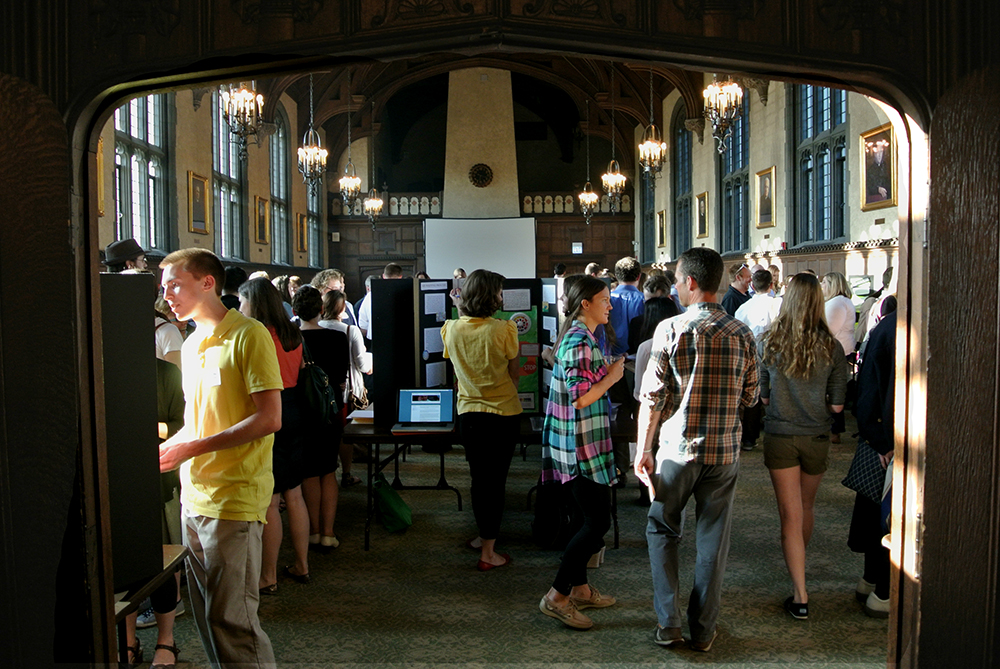
The First-Year Writing Program, a unit within the department of Writing, Rhetoric, and Discourse, provides courses to nearly all university students. Our goal is to help students learn to read and write critically within the context of the university and to prepare them for reading and writing in the world beyond.
Our program shares the following assumptions:
-
Literacies. We are helping students further develop their literacies. By literacy, we do not mean merely learning to read and write academic discourse, but also learning
ways of reading, writing, thinking, speaking, listening, persuading, informing, acting, and knowing within the contexts of university discourse(s) and multiple discourses in the world beyond the university. Consequently, writing classrooms should be places where these multiple activities are valued, and where there is ample opportunity for critical reflection on aims and results of literacy acquisition.
-
Reflection. Students are best able to transfer writing knowledge and practices they have learned in our courses to other classes and other contexts when they engage in regular, iterative, and sustained reflection about their writing knowledge, writing processes and practices, and writing products. Thus reflection plays a key role in learning to write effectively.
-
Language is a social process. Language (written, oral and multimodal) and literacy
are social processes. Language is, at heart, collaborative; hence dialogue with others is crucial for helping students situate themselves as writers, readers, and thinkers in the world.
-
Knowledge is a transaction. Within the context of literacy learning, knowledge is best considered
not as a commodity or product but rather as a complex process that involves give-and-take among participants within multiple contexts. The most productive classrooms, then, are those in which
everyone learns and
everyone teaches, and where knowledge is built through ongoing and productive interaction.
-
Support and Engagement. Learning to write in new genres and contexts is an extraordinarily complex activity. It takes time and requires a supportive environment where learners’ anxiety is minimized so that they can develop confidence and motivation
as writers, and where
every participant has responsibility for learning and a stake in the process.